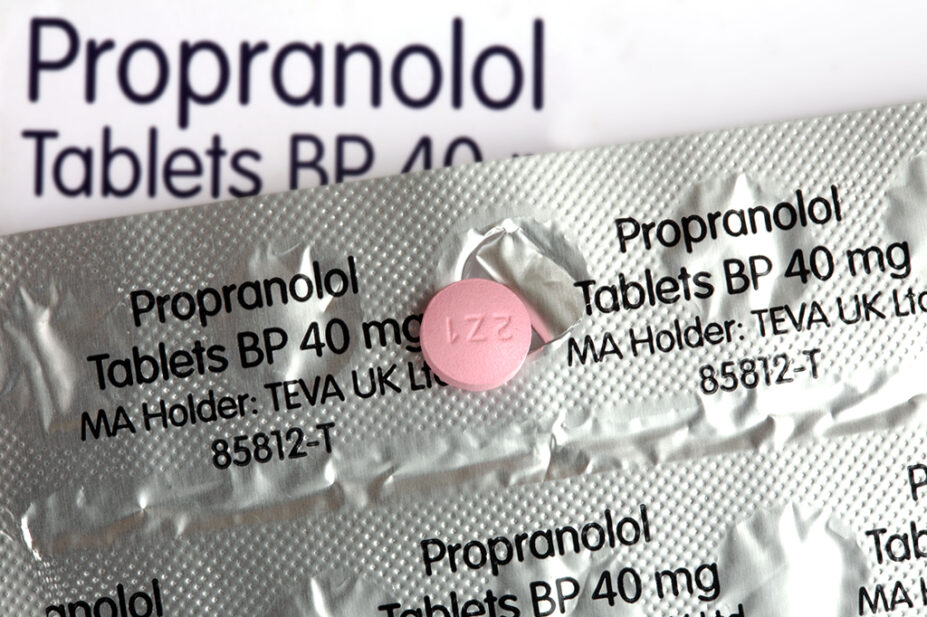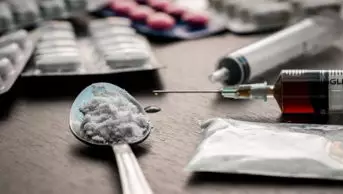
Angela Serena Gilmour / Alamy Stock Photo
More than 300 people in the UK took an intentional overdose of the drug propranolol in one year, a report from the National Poisons Information Service (NPIS) has revealed.
The NPIS’s annual report for 2022/2023, published on 9 January 2024, stated that 318 patients aged between 12 and 86 years had intentionally overdosed on propranolol that year; 12 people died as a result.
The report said that 173 overdose cases involved propranolol that had been prescribed, of which 108 were prescriptions to manage anxiety.
Propranolol is widely prescribed for the management of several medical conditions, including migraine prophylaxis, portal hypertension and thyrotoxicosis, as well as anxiety.
The NPIS said it had presented its annual data “to national and international congresses and is in the process of writing up a report that aims to raise awareness of the risk of harm following propranolol overdose”.
It added that “benefits will likely result from a careful assessment of the appropriateness of prescribing propranolol to individuals at risk of self-harm”.
The NPIS’s findings follow a report by the UK Healthcare Safety Investigation Branch (HSIB) in 2020, which investigated a fatal case of propranolol overdose in a woman who had been prescribed the medication for migraine prophylaxis.
The report included a recommendation that the National Institute for Health and Care Excellence (NICE) reviews and updates guidance on the use of propranolol in the treatment of anxiety and migraine, particularly with reference to overdose, and that the Royal Pharmaceutical Society (RPS) supports its members in identifying the potential risk of prescribing propranolol to patients in at-risk groups.
In response to the HSIB report, NICE said it would add a footnote to its headache guidance that propranolol may worsen or cause depression, advising caution when using in patients with depression and referring to the toxicity of propranolol in overdose.
The RPS raised awareness of the HSIB report with members through a support alert on its website and said it was supporting the wider dissemination of clinical information linked to the risks of propranolol through its publication, the British National Formulary, among other measures.
Commenting on the NPIS figures, Amira Guirguis, MPharm programme director at the University of Swansea Medical School, and chair of the RPS’s science and research committee, said the drug was generally perceived as well tolerated, with limited potential for misuse. However, she said that self-medication for anxiety with propranolol was a known issue.
“The drug is widely used by celebrities for the purpose of overcoming stage-related anxiety and fear,” she said.
“These practices may influence public perceptions and potentially contribute to the normalisation of its use without a clinician’s monitoring or supervision.
“Knowledge of the impact of overdose is quite limited,” she added.
“Pharmacists, including prescribers, should be vigilant when supplying and/or prescribing propranolol, especially in patients taking other central nervous system depressants, with a history of mental health, substance misuse or diversion of medicines, and history of suicidal thoughts or attempts.”
The Pharmaceutical Journal revealed in July 2022 that propanolol was included in a “watch list”, drawn up by the Advisory Council on the Misuse of Drugs, of drugs that have the potential for being supplied illicitly and abused.


